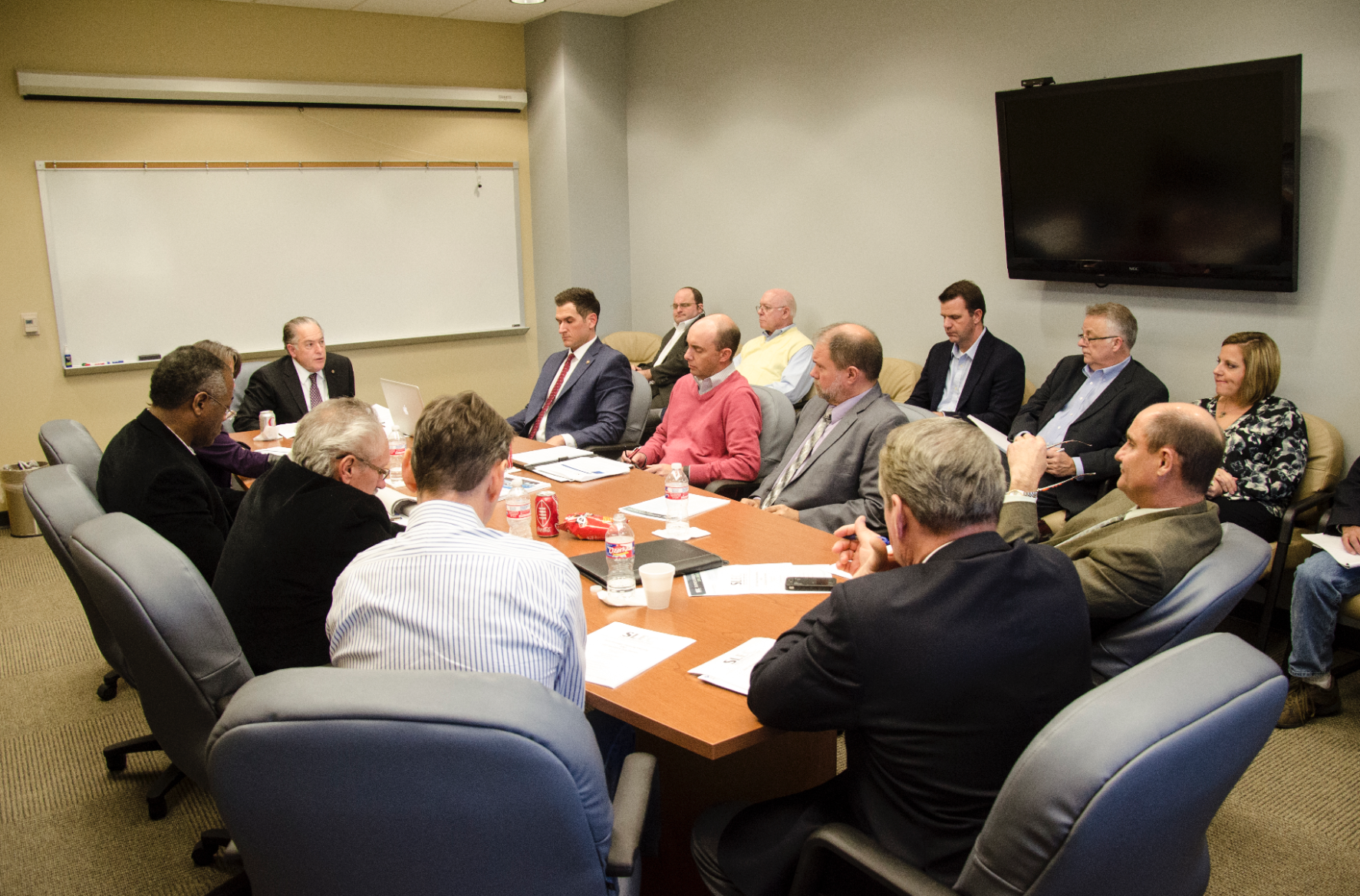PERMITS
March 9, 2016
Anterina Guidry
March 9, 2016As legislators check every nook and cranny of the budget to make up the state’s massive deficits, economic development officials are left with a bare cupboard.
The state’s incentive programs to promote business expansion, primarily tax credits, are on the chopping block during this special session. Legislators are looking at removing many of those tax credits to close the revenue gap, Terrebonne Economic Development Authority Business Retention and Expansion Director Katherine Gilbert-Theriot said.
“They’re looking for dollars, and the tax credit programs do provide them back if you satisfy the program,” Gilbert-Theriot said.
Don Pierson, secretary for Louisiana Economic Development, addressed those working in economic development before the special session began at a South Louisiana Economic Council strategy meeting at Nicholls State University. He said they must make sure that attracting new businesses and taxpayers to the state is not sacrificed at the fiduciary altar.
“We must defend our incentives. It is important to understand that this is not corporate welfare,” Pierson said. “Rather, this is a partnership between the public and private sectors. This is a contract in which a return is expected and enforced. It’s as safe a deal as we can make, and our communities are seeing a lot of return on our investments.”
Pierson described the LED a “resource provider,” saying his department must keep dialogue open to make sure small businesses know the tools available. SLEC President and Chief Executive Officer Vic Lafont drove home the importance of economic developers’ tools at hand.
“I do look forward to working with Secretary Pierson, and I am very excited about the opportunities that our dialogue will open. I also encourage area businesses to dialogue with SLEC, because, as Secretary Pierson said, our toolbox is for their benefit,” Lafont said.
Gilbert-Theriot said those incentives play critical roles in greasing the wheels for business expansion, such as an ad valorem tax credit for shops that buy more expensive equipment, so they do not pay additional taxes for improving their business. The credits are designed to give new or expanding businesses time to get on its feet before facing a higher tax bill.
As the special session draws to a close and tax credits are at risk, worry has spread across the state. Gilbert-Theriot said economic developers are worried about the state hamstringing their abilities to attract new investment.
“The economic development community, collectively, is very concerned about raiding and emptying our economic development toolbox,” Gilbert-Theriot.
Gilbert-Theriot spoke about how the repealing of tax credits would make TEDA’s job more difficult. She said the team would need to find other means to attract business to the area.
“We use the state’s programs in our efforts when we’re talking about business expansion or recruitment. So it makes our efforts a little more difficult, and we try to look for other ways, whether it’s with an infrastructure project or something of that nature, to try to assist the companies,” Gilbert-Theriot said.
Gilbert-Theriot said many oil-related businesses have cut their expenses such as overtime wages in light of the downturn, but those costs will not shoot back up the instant the industry bounces back.
“Right now it’s kind of a holding pattern in trying to stabilize where we are in the community. It’s a time where I do see companies looking at their training budgets, looking at their infrastructure, and those with the wherewithal are kind of re-tooling and positioning themselves, just like those from outside the community,” Gilbert-Theriot said.
According to Gilbert-Theriot, those from outside the community are seeing this slowdown as an opportunity to move into the market while prices are low before the oil economy comes back strong.
“We have been seeing some movement in the commercial sector in companies interested in properties and coming in. What I see is those with the wherewithal to do so are aligning themselves and positioning themselves for when the cycle comes back around in oil and gas,” Gilbert-Theriot said. •









